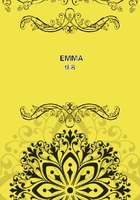
第59章
She had never been quite well since the time of their daughter's marriage; and till she should have completely recovered her usual strength, they must forbid her engaging in duties, which, so far from being compatible with a weakened frame and varying spirits, seemed, under the most favourable circumstances, to require something more than human perfection of body and mind to be discharged with tolerable comfort.
With regard to her not accompanying them to Ireland, her account to her aunt contained nothing but truth, though there might be some truths not told. It was her own choice to give the time of their absence to Highbury; to spend, perhaps, her last months of perfect liberty with those kind relations to whom she was so very dear: and the Campbells, whatever might be their motive or motives, whether single, or double, or treble, gave the arrangement their ready sanction, and said, that they depended more on a few months spent in her native air, for the recovery of her health, than on any thing else. Certain it was that she was to come; and that Highbury, instead of welcoming that perfect novelty which had been so long promised it--Mr. Frank Churchill--must put up for the present with Jane Fairfax, who could bring only the freshness of a two years' absence.
Emma was sorry;--to have to pay civilities to a person she did not like through three long months!--to be always doing more than she wished, and less than she ought! Why she did not like Jane Fairfax might be a difficult question to answer; Mr. Knightley had once told her it was because she saw in her the really accomplished young woman, which she wanted to be thought herself; and though the accusation had been eagerly refuted at the time, there were moments of self-examination in which her conscience could not quite acquit her. But "she could never get acquainted with her: she did not know how it was, but there was such coldness and reserve--such apparent indifference whether she pleased or not--and then, her aunt was such an eternal talker!--and she was made such a fuss with by every body!--and it had been always imagined that they were to be so intimate--because their ages were the same, every body had supposed they must be so fond of each other." These were her reasons--she had no better.
It was a dislike so little just--every imputed fault was so magnified by fancy, that she never saw Jane Fairfax the first time after any considerable absence, without feeling that she had injured her; and now, when the due visit was paid, on her arrival, after a two years' interval, she was particularly struck with the very appearance and manners, which for those two whole years she had been depreciating.
Jane Fairfax was very elegant, remarkably elegant; and she had herself the highest value for elegance. Her height was pretty, just such as almost every body would think tall, and nobody could think very tall; her figure particularly graceful; her size a most becoming medium, between fat and thin, though a slight appearance of ill-health seemed to point out the likeliest evil of the two.
Emma could not but feel all this; and then, her face--her features--there was more beauty in them altogether than she had remembered; it was not regular, but it was very pleasing beauty. Her eyes, a deep grey, with dark eye-lashes and eyebrows, had never been denied their praise; but the skin, which she had been used to cavil at, as wanting colour, had a clearness and delicacy which really needed no fuller bloom. It was a style of beauty, of which elegance was the reigning character, and as such, she must, in honour, by all her principles, admire it:--elegance, which, whether of person or of mind, she saw so little in Highbury. There, not to be vulgar, was distinction, and merit.